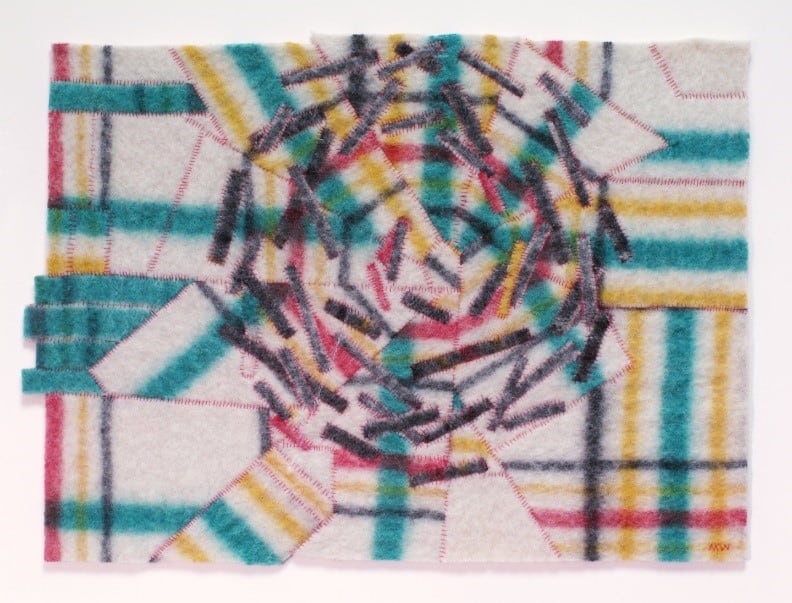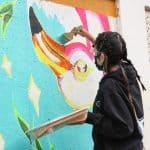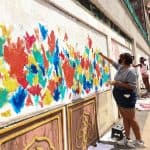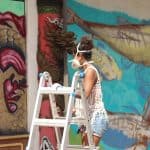FOR IMMEDIATE RELEASE: March 3, 2021
Rose City Park Elementary School third-grader announced winner
Portland, OR – The Regional Arts & Culture Council and the City of Portland’s Arts Oversight Committee are delighted to announce the winner of the 2021 Arts Education and Access Fund (AEAF) Logo Competition. The competition challenged students to reimagine the original logo to illustrate how the fund supports the community and showcase students who benefit from arts education in school.

Logo design by Vincente, Rose City Park 3rd Grader
Arts Education and Access Fund 2021 Logo Design Competition
Winner
Vincente, a third-grader at Rose City Park Elementary School
Finalists
Edison, a fifth-grader at Rose City Park
Cate, a seventh-grader at Sunnyside Environmental School
All students attend Portland Public Schools.
The design competition was open to all students from kindergarten to eighth grade who receive arts education in Portland’s six school districts: Portland Public, Parkrose, Reynolds, David Douglas, Centennial and Riverdale. The design challenge was to for students create a new AEAF logo over Winter Break 2020.
A panel of judges including professors and officials from Reed College, University of Portland, Pacific Northwest College of Art, Portland State University, Portland Art Museum, Echo Theater Company, Office of Commissioner Dan Ryan and the City of Portland Department of Revenue reviewed the submissions and selected the winner.
When asked what inspires him about art, Vincente replied, “Happiness. I have a sign in my room ‘Build Yourself Up and Never Give Up.’ I want people to become happy when they see my art.” Read the full interview with Vincente.
Arts Education
Arts education helps children develop the skills they need in order to communicate effectively, expand their analytical thinking, and engage with their community. In traumatic, turbulent times like these, art can be a literal lifeline for social, emotional, and mental health.
Art brings exposure to the world around us and broadens children’s interests as their capacity to learn new things expands. Students find solace in the arts and a space for their voices to be heard. Though arts, students are able to build consensus and connection, bring awareness to social issues, and highlight inequality and inequity in the world around them. Through arts education, our children—and the greater community—can see connections and develop unique relationships that align with our common goals and interests. Arts can— and should—be a celebration of our rich, culturally diverse society.
Portland’s Arts Education and Access Fund
Portland voters overwhelmingly approved the Arts Education and Access Fund in 2012 restoring arts education in all of Portland’s public elementary schools and expanding access to arts and culture for Portland residents. The City of Portland collects the tax and administers these dedicated funds. Portland’s Arts Oversight Committee, an independent volunteer committee reviews expenditures, progress and outcomes.
The Arts Education & Access Fund Oversight Committee seeks new members. Find out how to apply.
Thanks to the arts tax, today every elementary school in Portland’s six school districts (Centennial, David Douglas, Parkrose, Portland Public, Reynolds and Riverdale) now has at least one art, music, drama, or dance teacher on staff – about 100 teachers in total. Teachers have risen to the challenge of distance learning, still delivering arts education to students online. Funding allows for approximately one arts specialist for every 500 students. Find out more.
Money from the arts tax goes first to schools (65% of total funding since 2012). Any additional revenues are then allocated through RACC grants to arts organizations and special projects that expand access to arts and culture to underserved communities including communities of color, veterans, artists and audiences with different abilities. Portland neighborhoods underserved with RACC grants are also prioritized for project funding.
###
An independent nonprofit 501(c)3 organization, we support greater Portland’s creative economy by providing equitable funding and services to artists and art organizations; managing and growing our diverse, nationally-acclaimed public art program; and developing long-lasting public and private partnerships. For more information visit racc.org.
MEDIA CONTACT: Heather Nelson Kent, Communications Manager, Regional Arts & Culture Council
503-823-5426, hnkent@racc.org







